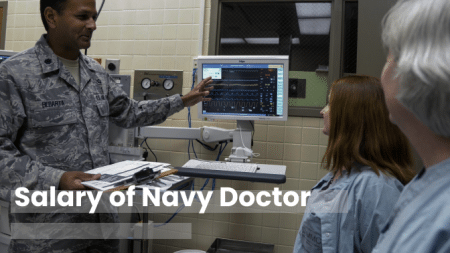Nursing is the most prestigious and well-respected profession in the United States, employing millions of registered nurses (RNs). Many of these RNs aspire to advance in their careers and eventually become family nurse practitioners (FNPs). That’s because FNPs are responsible healthcare practitioners capable of diagnosing and managing chronic ailments. FNPs have more responsibilities than traditional nurses and play a more crucial role in the long-term well-being of a community.
So, what’s in it for RNs, and why should they consider a career as a FNP? This article goes through a few of these reasons and explains why FNP should be the next stop in your career advancement journey.
-
Easy Learning Options
Many nurses today feel overworked and overloaded. So, joining an on-campus program to pursue their studies is out of the question for them. However, if you wish to advance in your career, then continued education is the only way to achieve this goal. You can still keep your full-time job and further your education via online programs.
So, go back to school digitally and pursue your nursing ambitions from the comforts of your home. As a registered nurse, look for CCNE-accredited online courses to get the clinical experience needed to advance in your career. These RN to FNP online programs have been designed to be flexible for a working nurse. So, enroll in a program to bolster your credentials within 28 months.
-
An In-Demand Career
As per the BLS, the career of the nurse practitioner is expected to grow by 38% between 2022 and 2032, a rapid increase when compared to many other professions. That’s because America is facing a terrible shortage of doctors, so FNPs are serving as primary caregivers in their stead.
They can perform similar duties as doctors do, and visiting them costs surprisingly less than typical physicians. For instance, a survey shows that NPs charge their patients 34% less than doctors do, granting cost-effective access to health services to the nation’s marginalized communities.
That’s why FNP remains an in-demand career, attracting many NPs from all over the country.
-
Treat Patients of all Ages
What’s amazing about family nurse practitioners is how they treat patients of all ages and sexes with equal compassion. That’s what the “family” component of your job description stands for, i.e., taking care of an entire family and catering to your client’s well-being on a societal level.
That’s why around a billion patients visit their nearest nurse practitioners in a given year, showcasing an FNP’s potential to fill the gaps left by a shortage of doctors in our society nowadays.
-
More Independence
What’s really amazing about being a family nurse practitioner is the autonomy that comes with this job. As an FNP, you will have almost the same responsibilities as traditional doctors. As of today, all 50 states allow family nurse practitioners to prescribe medication after assessing and diagnosing any chronic ailments. That’s how FNPs have replaced physicians in many capacities.
-
Stable Work Hours
Many nurses find themselves overworked and underpaid in a very unstable, confrontational industry. Dealing with uncooperative patients and life-or-death situations, they become easy targets for stress, anxiety, and depression. That’s why 38% of nurses suffer from burnout every year while the rest deal with a poor work-life balance. So, how do FNPs fare any better than conventional RNs?
For starters, FNPs have stable business hours with limited on-call duties or after-hours requirements. They may choose to fly solo and work three days a week as part-time nurse practitioners.
That’s why FNPs enjoy a better work-life balance and a stronger grip on their mental health.
-
Improved Patient Outcomes
As primary caregivers, NPs can use their skills to significantly improve patient outcomes throughout the nation’s hospitals. You can leverage your training as an RN to build up on your existing expertise to reshape the future of healthcare in America. From the bedside to the boardroom – your expertise as an FNP helps you fight all sorts of challenges facing the health industry.
As an FNP, you will educate your patients, provide them with a great patient experience, and reduce hospital readmissions to bring down the total cost of health services in the US. That’s why the health sector is looking to include more FNPs in the system, a green light for your career.
-
Better Earning Potential
When it comes to comparing their earning potential, FNPs have a greater advantage over their fellow RNs. While a registered nurse makes over $80,000 on average, an FNP’s yearly salary lies between $144k and $133k, as per national surveys. That’s simply because of a family nurse practitioner’s years of experience and area of expertise, among other factors.
-
Constant Career Growth
Back in 2009, a survey by CNN Money described NP as the best career for an American student. Even today, career gurus regard it as the second-best job, right below software engineer.
These statistics should convince you to excel in your studies and pursue this career pathway. It is a great opportunity for nurses and can even help you transition into leadership positions.
-
Get Leadership Positions
As an FNP, you can expand your practice beyond the limits imposed by your lack of expertise as an RN. Family nurse practitioners are extremely versatile and can hold managerial positions in educational institutes, nursing practitioner offices, and healthcare organizations.
Even public health departments are always open for experienced FNPs, and you can participate in formulating public health policy, improving people’s well-being nationwide.
Endnote
In short, RNs should aspire to become FNPs because they get paid better, receive more autonomy, and can enter a stable, lucrative market. FNPs are highly sought-after in the American health sector, so you’ll get a job right after graduating. The best part is that you can enroll in an online program to become an FNP in less than three years while keeping your full-time job.
Continue your academic progress as a nurse and touch new heights of success via RN to FNP programs.










